“I really want this year to be victorious for Ukraine, including on the information front,” said Olena Usmanova, an associate professor of the Department of Journalism at Zaporizhzhia National University, at the Zaporizhzhia JSC of the National Union of Journalists of Ukraine (NUJU), who began the training called Which Sources Of Information To Trust, How To Recognize Manipulations at the Zaporizhzhia JSC.
“Russian special services spread more than 166 million fake messages every week. These messages are designed to play on emotions, provoke panic, and demoralize society. We must clearly realize that every false post and every unverified information is another blow to our unity. We must understand that the media play a key role in countering disinformation. Therefore, journalists should not only adhere to professional standards but also teach people to think critically,” the coach emphasized.
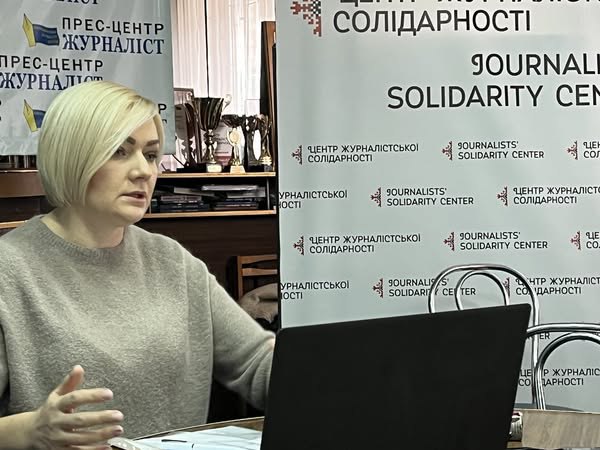
Olena Usmanova provided practical advice for journalists, which, by the way, is relevant for all citizens so as not to lose orientation and not fall under the influence of russia’s fake news.
- Trust only official sources, such as the General Staff of the Armed Forces of Ukraine or state institutions; before distributing any information, be sure to check its reliability through several independent sources.
- Avoid little-known channels. Dubious Telegram channels or pages on social networks often use manipulation. Unfollow them and share only verified content.
- Pay attention to manipulative headlines and do not read these messages, as they often distort reality.
- Do not distribute emotional or dubious messages. Pause, check the facts, and think about the consequences.
- Use tools that will help detect disinformation. These are platforms for checking photos and videos, such as Google Images, TinEye, and Exif Viewer. These tools are available to everyone. Use them to analyze the context, geolocation, and time of publication of materials.
The coach also emphasized that increasing media literacy is our common task. Only together can we protect Ukrainian society from information chaos and preserve our unity.
In the practical part of the training, journalists, divided into groups, analyzed the reliability and manipulation of information published in the media and social networks, which the coach selected for them. Interestingly, the participants of the training, as Olena noted, acted as real media experts and provided convincing arguments and evidence of the presence of manipulation and distortion of facts even in materials prepared by professional journalists.
The training became important not only as a learning experience but also as a reminder that each of us can contribute to victory not only on the front but also in the information space.
Call the Zaporizhzhia JSC at 096 277 5352 (Nataliya Kuzmenko and Valentyna Manzhura, the Zaporizhzhia JSC coordinators). The Center is located at 152 Sobornyi Avenue.
ABOUT JSC
The Journalists’ Solidarity Centers is an initiative of the NUJU implemented with the support of the International and European Federations of Journalists and UNESCO. The initiative is designated to help media representatives working in Ukraine during the war. The Centers operate in Kyiv, Lviv, Ivano-Frankivsk, Chernivtsi, Zaporizhzhia, and Dnipro and provide journalists with organizational, technical, legal, psychological, and other types of assistance.
ABOUT UNESCO
UNESCO is the United Nations Educational, Scientific, and Cultural Organization. It contributes to peace and security by promoting international cooperation in education, sciences, culture, communication, and information. UNESCO promotes knowledge sharing and the free flow of ideas to accelerate mutual understanding. It is the coordinator of the UN Action Plan on the Safety of Journalists and the Issue of Impunity, which aims to create a free and safe environment for journalists and media workers, thus strengthening peace, democracy, and sustainable development worldwide. UNESCO is working closely with its partner organizations in Ukraine to provide support to journalists on the ground.
The designations employed and the presentation of material throughout this digest do not imply the expression of any opinion whatsoever on the part of UNESCO concerning the legal status of any country, territory, city, or area or its authorities or concerning the delimitation of its frontiers or boundaries.
The authors are responsible for the choice and the presentation of the facts contained in this digest and for the opinions expressed therein, which are not necessarily those of UNESCO and do not commit to the organization.
Svitlana Karpenko, Valentyna Bystrova
Photo by authors

 THE NATIONAL UNION OF
JOURNALISTS OF UKRAINE
THE NATIONAL UNION OF
JOURNALISTS OF UKRAINE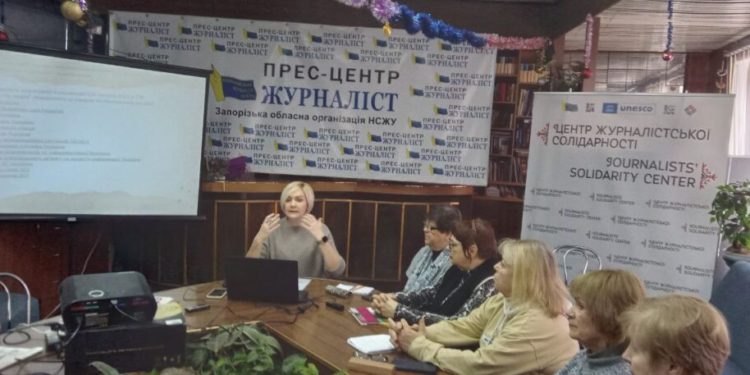
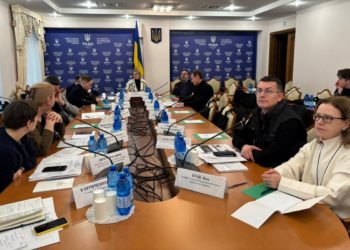
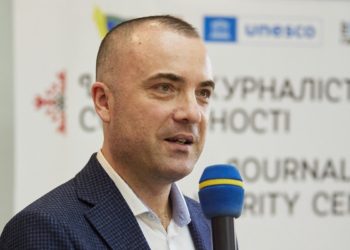
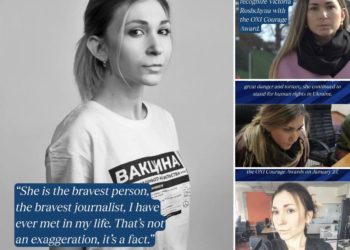













Discussion about this post